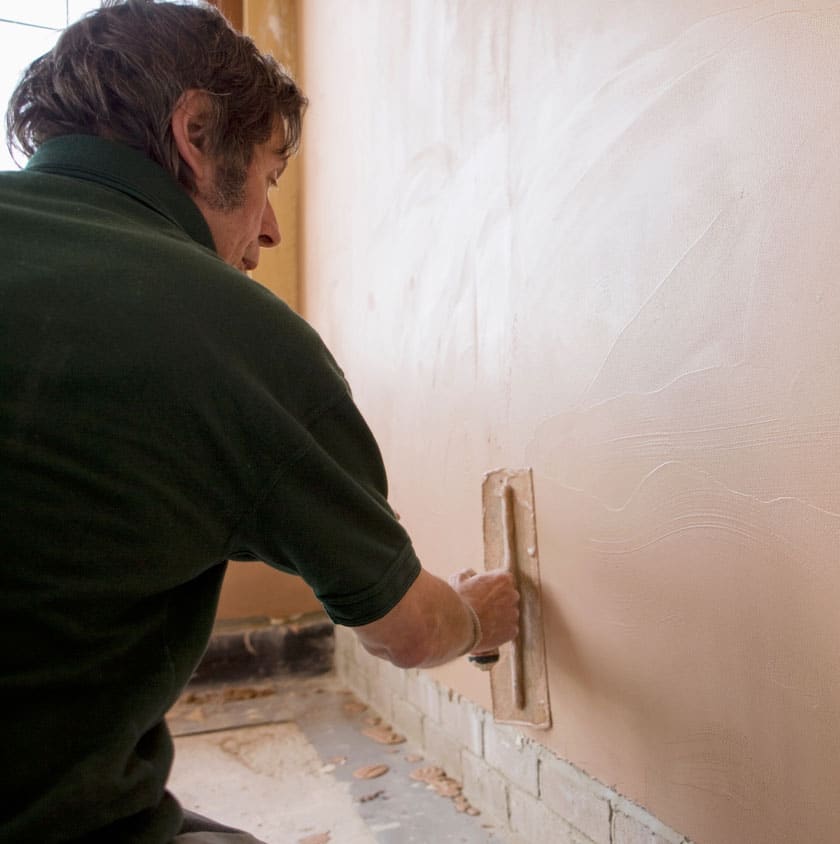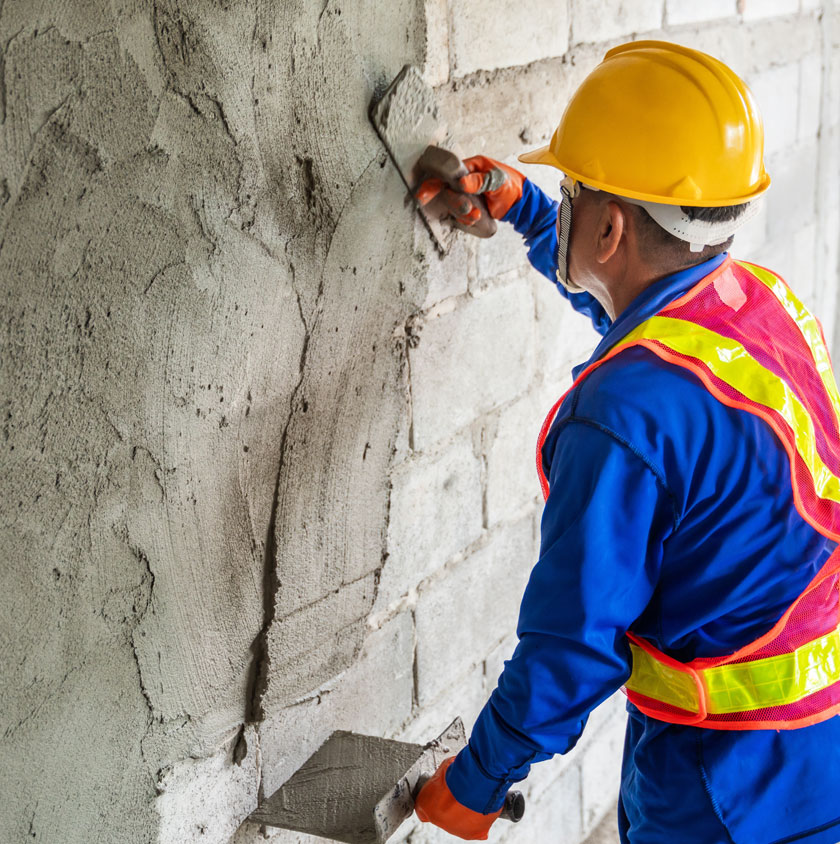
Plasterer Insurance
Compare Plasterer Insurance Quotes
- Complete one short form
- Quickly compare quotes
- Find a great deal today!

Compare insurance quotes from UK’s leading plasterer insurers including:
Why Compare Plasterer Insurance Quotes At SimplyQuote.co.uk?
Comparing plasterer insurance helps you find tailored protection for the work you actually do — without overpaying or missing key cover.
At SimplyQuote, we work in partnership with Quotezone to connect you with real-time quotes from trusted tradesmen insurers. You enter your details once, and we match you with policies built specifically for trades like yours.
Whether you’re skimming ceilings, rendering walls, or boarding new builds, the risks can vary — so should your policy. Comparing makes it easy to select the right level of public liability, add extras like tool cover or personal accident, and stay compliant if you’re hiring help.
There’s no sales pressure, no cold calls — just a fast, transparent way to get the cover you need and get back to work.
What Do I Need to Get a Quote?
To get a plasterer insurance quote, you’ll need to provide a few simple details about your work, your business setup, and the type of cover you’re looking for.
It usually takes less than five minutes. You’ll be asked about:
- Your trade specifics – e.g. internal plastering, rendering, dry lining, or site boarding
- Work type – Domestic, commercial, or both
- Your business structure – Self-employed, limited company, or with subcontractors
- Postcode and annual turnover – Used to assess risk and calculate your quote
- Use of tools and equipment – Especially for tool cover
- Whether you employ anyone – Employer’s liability is a legal must if you do
- Claims history – Past claims can affect your premium
- Public liability limit – Usually £1M, £2M, £5M or £10M depending on the job size
- Extras – Like tool cover, personal accident, or legal expenses cover
The form is quick and tailored to your trade. The more accurate you are, the more accurate your quote — and the better protected you’ll be.
Why Do I Need Plasterer Insurance Cover?
Plasterer insurance protects you if something goes wrong — whether it’s damaging a client’s property, someone getting injured, or your tools being stolen.
It can also help you meet legal and commercial requirements.
Even a basic domestic job can go sideways. You might spill bonding mix onto a carpet, crack a customer’s skirting board while boarding, or leave a floor slippery and cause a fall. And if someone’s injured or property’s damaged, public liability insurance could cover the legal fees and compensation.
If you’re self-employed, you’ve got no sick pay — so personal accident cover can step in if you’re hurt and can’t work. Tool cover helps you bounce back quickly if your kit goes missing from a site or van. And if you’re hiring help, employer’s liability insurance isn’t optional — it’s the law.
Clients expect professionalism, and insurance shows you take the job seriously. In some cases, you won’t even get on site without proof of cover.

What Insurance Do Self-Employed Plasterers Need?
If you’re a self-employed plasterer, you’ll likely need public liability insurance as a minimum — and many also choose tool cover and personal accident insurance.
Even if you work alone, you’re still legally and financially responsible for what happens on the job.
Here’s what most self-employed plasterers include in their cover:
- Public liability – If you spill bonding mix on a client’s floor or damage skirting with a trowel, this protects you against legal fees and compensation claims.
- Tool cover – If your plastering kit is stolen from your van or damaged on-site, this can help you replace it and get back to work quickly.
- Personal accident insurance – Offers a payout if you injure yourself and can’t work. Important if your income stops the moment you do.
- Employer’s liability – Not needed if you work solo. But if you bring in help — even casually — this becomes a legal requirement.
Even a small mistake can cost you thousands. Insurance gives you a safety net — and often makes you more hireable by showing clients you’re professional and prepared.
Does Plasterer Insurance Cover Subcontractors Or Hired Help?
Plasterer insurance doesn’t automatically cover subcontractors or hired help — and if you don’t declare them, any claims involving them could be rejected.
If you’re working with others, you’ll need to get this right upfront. Here’s what insurers look at:
Labour-only subcontractors
These are workers you direct and who use your tools. They’re treated as employees — and you’re legally required to have employer’s liability insurance to cover them.
Bona fide subcontractors
These are tradespeople who supply their own tools, work independently, and carry their own insurance. You’re not responsible for their actions — but insurers may still expect you to check their documents.
Casual or short-term help
Even if someone’s just helping you finish a big domestic job over a few days, they often fall under “labour-only.” If they’re injured and you don’t have the right cover, you could be personally liable.
If you plan to scale your business, even temporarily, make sure your policy reflects how you actually work. It’s not worth the risk.
What Does Plasterer Insurance Cover Include?
Plasterer insurance usually includes public liability, tool cover, personal accident protection, and employer’s liability if you hire help.
Most policies can be adjusted to match the way you work — whether that’s small domestic jobs or large-scale commercial contracts.
Here’s what’s typically covered:
- Public liability insurance – Covers injury or damage caused by your work. If a customer trips on your trowel or you damage a doorframe while boarding, this helps cover legal fees and compensation.
- Tool cover – Protects your kit from theft or accidental damage. This includes trowels, mixers, paddles, lasers, and other essential gear — whether in a van, on-site, or stored securely.
- Employer’s liability insurance – Legally required if you hire staff or labour-only subcontractors. Covers claims from people who get injured or ill while working under your instruction.
- Personal accident insurance – Pays out if you’re injured and unable to work. Especially useful if you’re self-employed and depend on your hands to earn a living.
- Legal expenses cover – Helps cover the cost of legal disputes, tax investigations, or defending yourself against a claim not covered by public liability.
Depending on how you work, some plasterers also add contract works insurance to protect unfinished jobs against things like fire, flood, or vandalism on-site.

What’s Not Included?
Plasterer insurance won’t cover everything — and knowing the common exclusions can save you from costly surprises later.
Each insurer has their own terms, but here are some things usually not covered:
- Tool wear and tear – Your policy won’t replace trowels, mixers, or sanding gear that break down due to age or overuse. That’s general maintenance.
- Unsecured tools or vans – If your gear is left in an unlocked vehicle or unattended on-site, many insurers won’t pay out — even if you have tool cover.
- Undeclared subcontractors – If you bring in help but haven’t added them to your policy, you may not be covered if they cause damage or get injured.
- Work outside your declared trade – If your policy is set up for plastering and you take on joinery, tiling, or painting jobs, those tasks may fall outside your cover.
- Faulty workmanship – If a client’s not happy with the finish, public liability won’t pay to fix it. This kind of issue usually isn’t insured.
- Illegal or unsafe practices – Breaking health and safety rules or using unlicensed materials can invalidate your policy.
Every policy has its limits — but being aware of them means you can work within the boundaries, or update your cover if your work evolves.
How Much Does Plasterer Insurance Cost?
Plasterer insurance typically starts from around £80 to £200 per year for sole traders — but the actual cost depends on the type of plastering work you do, your risk profile, and the level of cover you select.
If you’re a self-employed plasterer focused on small domestic jobs, you could pay between £7–£15 per month. But your premium will increase if you:
- Regularly work at height or on scaffolding
- Take on commercial or site-based contracts
- Use valuable tools that need cover against theft or damage
- Employ subcontractors or labourers
- Have a history of insurance claims
- Require a higher limit of public liability — £2M or £5M cover
Your business location also plays a part. Working in high-theft or urban areas often raises premiums, especially if you add tool protection to your policy.
Choosing the cheapest policy can backfire if it misses the essentials. The best approach is to compare quotes, understand what’s included, and pick the cover that reflects how you actually work.
How Can I Save Money On Plasterer Insurance?
You can save money on plasterer insurance by tailoring your policy to the work you actually do, storing your tools securely, and shopping around before renewing.
Being insured is essential — but overpaying isn’t.
Here are smart ways plasterers reduce their premiums:
Choose the right public liability limit
Don’t pay for £5M cover if most of your work is domestic. £1M or £2M is often enough.
Only insure the tools you use
Avoid rounding up. Declaring the true value of your kit can trim your tool cover cost.
Improve your tool security
Lockboxes, deadlocks, and alarms can lower your risk profile and make you more attractive to insurers.
Compare quotes annually
Many policies creep up at renewal. A quick quote check could save you 10–20% without losing cover.
Increase your voluntary excess
If you’re confident in your risk level, this can reduce your monthly or annual premium.
Keep your claims record clean
Paying for smaller breakages yourself can protect your premium long-term.
Saving money on insurance isn’t about cutting corners — it’s about knowing where the value is and not paying for what you don’t need.
How To Compare Plasterer Insurance Quotes Online
Comparing plasterer insurance at simplyquote.co.uk takes minutes — and it’s built around the way tradespeople actually work.
You provide your details once, and we show you tailored quotes from trusted UK insurers.
Here’s how it works:
- Tell us what you do
Select “Plasterer” as your trade, then fill in basic details like your postcode, business setup, turnover, and the kind of work you take on. - Choose the cover you need
Pick your public liability level (£1M, £2M, or £5M), and add extras like tool cover, personal accident, or employer’s liability if required. - Get your quotes instantly
You’ll see live results from insurers that understand the plastering trade — no cold calls, no third-party pressure. - Compare what matters
Don’t just look at price. Review what’s actually covered, the excess levels, exclusions, and whether the policy fits the way you work. - Apply directly online
When you’re ready, go straight to your chosen insurer. Simple, secure, and powered by our partnership with Quotezone.
Comparing quotes is one of the quickest ways to save money — and make sure your policy is working as hard as you are.
Frequently Asked Questions
Not unless you employ staff. Public liability isn’t a legal requirement, but many sites, clients, and commercial contractors won’t work with you unless you have it.
Yes. You just need to declare your estimated annual turnover and describe your typical work. Many sole traders or weekend workers take out part-time cover.
It usually is, but you should declare it upfront. Some insurers treat external rendering as higher risk due to ladder work and environmental exposure.
Yes, as long as this type of work is declared when applying. Some insurers treat construction site work differently from domestic jobs.
Most policies cover low-level access work by default. If you’re regularly using scaffolding or working at height, check that it’s explicitly included.
If you carry out work outside of plastering, you’ll need to declare it. Otherwise, your cover may not apply if something goes wrong during non-declared work.
No — vehicle cover is separate. But you can often insure the tools stored in your van under your tool cover, as long as security conditions are met.
Yes — public liability usually includes accidental property damage, like knocking over a TV or splashing render on a driveway.
Written by Chris Richards
Page last reviewed on 27th March 2025 by Chris Richards
